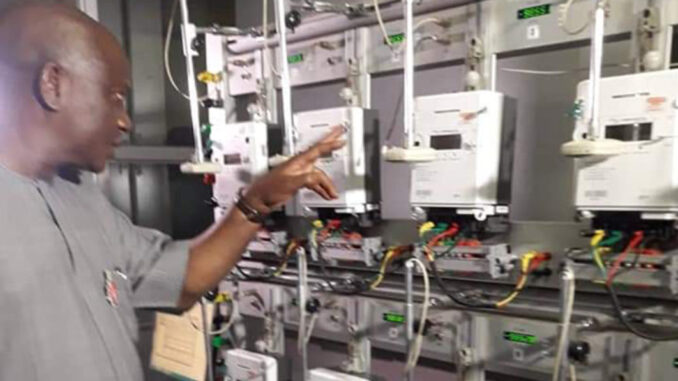
Notwithstanding the merits and the demerits canvassed by stakeholders, the planned increase in tariffs of electricity and telecoms services is sure to increase cost of living, aggravate inflation and consequently lower the standard of living of Nigerians. This cannot but be lamentable considering the battle most Nigerians are facing to survive the economic downturn in the country. The imperative is on government to carefully reconsider the approval granted operators, or take immediate steps towards remedial measures in the interest of Nigerians. Let it not be seen that the government is associated always with revenue generation that does not translate to economic prosperity for the average Nigerian.
The Special Adviser to President Bola Tinubu on Energy, Olu Verheijen, had announced plans to increase electricity tariff in the coming months, citing the need for a cost-reflective pricing model to attract private investment into the power sector. Verheijen stated this at the Africa Heads of State Energy Summit in Dar es Salaam, Tanzania. He however, added that the planned increase needed to be balanced by subsidies for less-affluent electricity users.
At home, a 50 per cent increase in the prices of calls, data, SMS and other telephone services being offered by MTN, Airtel, Globacom, 9mobile and other telecoms operators in Nigeria was approved even as Nigeria’s galloping inflation hit 34.8 per cent as of December 2024. The increase was announced by the Nigerian Communications Commission (NCC) in a statement signed by the Director of Public Affairs, Reuben Muoka.
The 50 per cent hike pushes the floor price (minimum acceptable price) of calls to N9.6 per minute from N6.40 and make the ceiling price (maximum acceptable price) of calls to N50; the cost of SMS to N6 from N4; and the cost of 1GB of data to N431.25 from N287.5. The average price of calls will be N16.5/minute from N11.
Muoka said the adjustment, capped at a maximum of 50 per cent of current tariffs, though lower than the over 100 per cent requested by some network operators, was arrived at taking into account ongoing industry reforms that will positively influence sustainability.
While the telecoms decision represents the first major tariff adjustment almost 12 years after the last one, the electricity tariff increase is coming closely on the heels of stiff increase in the c classified Band A of the sector, over which Nigerians and industries are still reeling, particularly because the power supply is far from being steady, contrary to official promise. Similarly, the telecomm increase has been met with widespread concern and protests from subscriber bodies and labour unions, highlighting the delicate balance between the needs of the telecoms industry and the affordability of essential services for the populace.
Telecoms operators, which according to the Group Special Mobile Association (GSMA) paid N2.4 trillion in taxes and levies to governments in 2023, have cited rising operational costs due to factors such as the devaluation of the naira and increased energy expenses. They had initially sought a 100 per cent hike. While the NCC capped the increase at 50 per cent, this still represents a substantial burden for many Nigerians, particularly those on lower incomes.
Without doubt, the hike will disproportionately affect the poor, further widening the digital divide and limiting access to crucial communication services. In a country where many rely on mobile phones for everything from business transactions to education and social connection, the increased cost of communication could have far-reaching consequences.
The increase in electricity tariffs is deemed unjustified in the face of very poor services. Professor of Energy Economics and President of the Nigerian Economic Society (NES), Adeola Adenikinju a former consultant to the United Nations Development Programme (UNDP), Dr Samson Olalere captured the faulted the planned increase of electricity tariff, saying: “ It is hard to justify the increase in electricity tariff at this time.. The promise of a stable electricity supply following the last tariff increase has not been fulfilled; electricity supply remains epileptic in most cases. Nigerians are also reeling from the high inflationary environment. Higher electricity tariffs would undoubtedly fuel inflation rate in Nigeria.”
Also, the Campaign for Democratic and Workers’ Rights (CDWR) in a statement by its National Publicity Secretary, Chinedu Bosah, described the increase as an outrageous move that will further escalate the cost of living and doing business, deepening the economic hardship faced by workers and the masses.
Proponents of telecom tariff increase argue that it is necessary to ensure the sustainability of the telecoms sector. They contend that operators need increased revenue to invest in infrastructure upgrades, improve service quality, and expand network coverage, particularly in underserved rural areas.
While tariff increase could lead to increased revenue for telecoms operators and DisCos enabling them to invest in infrastructural and network improvements and expansion, it could also lead to reduced affordability for consumers, potentially exacerbating the digital divide and hindering economic opportunities.
The telcos may have had their way on the hike, it is however expedient for them to be more transparent in the pricing structure while consumers may need to adjust their usage patterns to maximise value. In all of these, there must be continuous deliberation among all stakeholders, including the NCC, telecoms operators and consumer advocacy groups; and the government must collaborate to chart a path forward that ensures sustainability for operators while keeping services accessible to the average Nigerian.
The government faces the crucial task of ensuring that the benefits of a thriving telecoms sector are not achieved at the expense of the most vulnerable
END

Be the first to comment